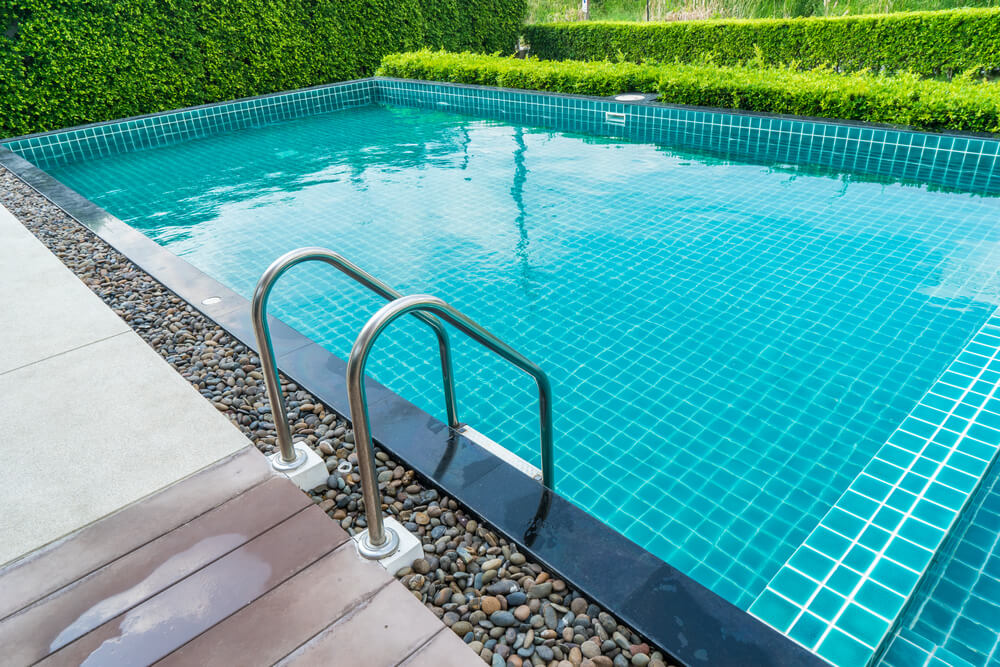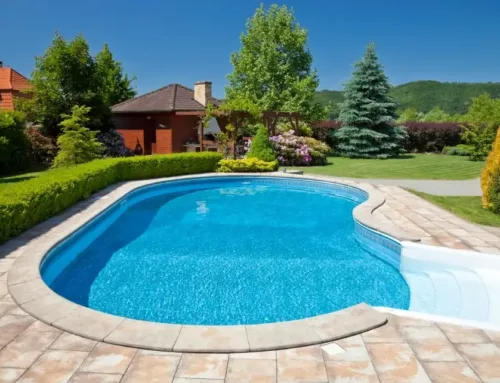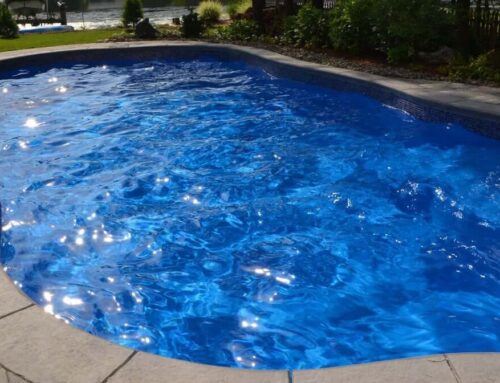Saltwater pool maintenance has gained popularity in recent years due to the perceived advantages it offers over traditional chlorine pools. Unlike chlorine pools, which need frequent chlorine additions to keep the water clean and clear, saltwater pools use a salt chlorinator to generate chlorine from salt, making maintenance much more straightforward and less time-consuming. With saltwater pool maintenance, you can enjoy a crystal-clear pool without the hassle of constantly monitoring and adding chemicals.
However, to ensure that your saltwater pool remains in top condition, it is essential to follow proper maintenance procedures and stay on top of regular cleaning and upkeep. When compared to chlorine pools, saltwater pools are much more pleasant for the skin and eyes of pool owners. And they require less maintenance than traditional pools, so you won’t spend the entire summer worrying about the chlorine levels. Even so, little upkeep isn’t the same as zero maintenance. And if you require swimming pool and spa repairs and maintenance in Miami, you have come to the right place.
Why Do I Need Saltwater Pool Maintenance
Saltwater pools are becoming very popular due to their reduced need for harsh chemicals and their ability to provide a more natural swimming experience. However, just like any other type of pool, saltwater pools still require proper maintenance to keep them functioning at their best. Regular saltwater pool maintenance helps ensure that the water remains clean, clear, and safe for swimming.
One of the main reasons for maintaining a saltwater pool is to control the levels of salt and other minerals in the water. Over time, these levels can become imbalanced, leading to issues such as skin irritation, cloudiness, and even equipment damage. Regular saltwater pool maintenance helps to keep these levels within a safe and optimal range. Additionally, it is also important to regularly clean and maintain the pool’s filtration system and other equipment to ensure that it continues to function efficiently.
How to Maintain a Saltwater Pool

Maintaining a saltwater pool requires a few key steps that should be performed regularly. The first step is periodically checking and adjusting the salt levels in the pool water. This is important because the salt levels play a significant role in the pool’s chlorine generator’s functioning, which keeps the water clean and free of harmful bacteria and algae. Ideally, the salt levels should be between 3,000 and 4,000 ppm.
Another vital aspect of salt pool maintenance is regular cleaning and maintenance of the pool’s filtration system. This includes checking and cleaning the pool’s filter, pump, and skimmer basket. This helps to keep the water flowing smoothly and prevent clogs, which can impact the pool’s overall performance. It’s also a good idea to regularly clean the pool tiles, walls, and floor to keep the pool looking its best.
Finally, it’s important to periodically test the water to ensure that the pH, chlorine, and other levels are within a safe and optimal range. This can be done using a simple water testing kit, which is readily available at most pool supply stores. If you notice that any of the levels are out of balance, you can take steps to adjust them accordingly. Additionally, it’s a good idea to have your saltwater pool inspected and serviced by a professional on a yearly basis to ensure that everything is functioning properly and that any potential problems are caught and addressed before they become more significant issues.
Sings You May Need a Saltwater Pool Maintenance
- Cloudy Water: If the water in your saltwater pool looks cloudy or hazy, this is clear that your pool needs maintenance. It can be caused by several factors, including an imbalance in the pH levels, high levels of chlorine, or a buildup of algae. To fix this issue, you’ll need to test the water, adjust the levels as required, and shock the pool if necessary.
- Algae Growth: It is a common issue in saltwater pools and is usually a result of high levels of nutrients in the water. This can cause the water to turn green, which is not only unsightly but can also be dangerous for swimmers. To prevent algae growth, it’s crucial to maintain a proper balance of chemicals in the water and to clean and maintain the pool regularly.
- Salt Cell Issues: The salt cell is an essential component of a saltwater pool, producing chlorine to keep the water clean. If you notice a decrease in chlorine levels, this could be a sign that the salt cell is not functioning properly. A salt cell that needs maintenance will also produce more chloramines, which can cause skin irritation and an unpleasant odor. Regular maintenance, including cleaning and replacing the salt cell if necessary, will help to keep your pool functioning properly and provide a clean, safe swimming environment.
Saltwater Pool Maintenance Checklist
If you want to have a perfect saltwater pool, you should definitely:
- Make a routine upkeep plan to ensure nothing gets overlooked.
- Always check the pool water after a thunderstorm to make sure the chemicals are still working properly after they’ve been diluted by the rainwater.
- If you have little time, utilize a pool chemical or pH test strip instead of a liquid testing kit.
- Each of your pool’s major components—pump, filter, and skimmer—comes with its own set of straightforward upkeep instructions.
- Some homeowners in warmer climates may need to clean or replace their salt cells more frequently if they use a saltwater generator.
- After excessive use, like after a pool party, a shock treatment is recommended.
- Regular cleaning of pool ladders and railings is essential due to the corrosive nature of saltwater.
- Contact the professionals such as Florida Pool Patio for help.
Benefits of Maintaining a Saltwater Pool

- Healthier Swimming Environment: One of the most significant benefits of maintaining a saltwater pool. Saltwater pools use a low salt level to produce chlorine, which is gentler on the skin and eyes than traditional chlorine pools. This makes it an excellent option for people with sensitive skin or allergies. Furthermore, saltwater pools are less likely to cause red eyes, skin irritation, and other health-related issues than traditional chlorine pools.
- Cost-Effective: While the upfront cost of installing a saltwater pool may be higher than that of a traditional chlorine pool, it is often more cost-effective in the long run. This is because saltwater pools use less chlorine, saving you money on chemicals in the long run. Furthermore, regular maintenance and upkeep of a saltwater pool are often easier and less expensive than for a traditional chlorine pool. This makes it an excellent option for those who are looking to save money on pool maintenance costs.
- Low Maintenance: Another significant benefit of maintaining a saltwater pool is that it requires less maintenance than traditional chlorine pools. With a saltwater pool, you won’t need to add chlorine to the water as often, which can save you time and effort. Furthermore, the salt cell in a saltwater pool is designed to be self-regulating, which means that you won’t need to monitor the chemical levels in the water constantly.
Get in touch with us as soon as possible if you want an estimate on building a new pool or transforming an old one. If your swimming pool needs maintenance, Florida Pool Patio is here to help.






